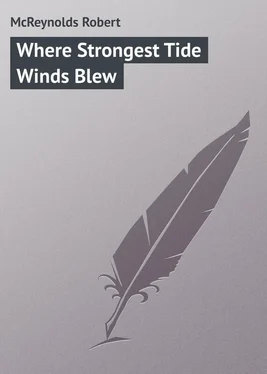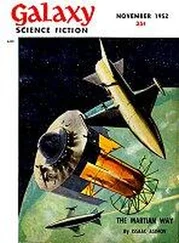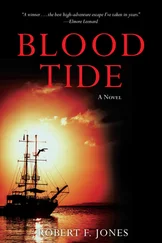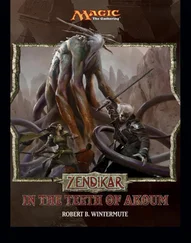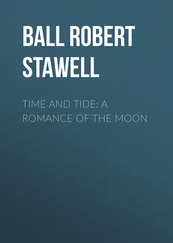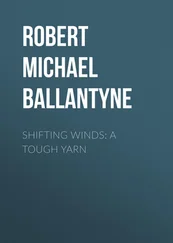Robert McReynolds - Where Strongest Tide Winds Blew
Здесь есть возможность читать онлайн «Robert McReynolds - Where Strongest Tide Winds Blew» — ознакомительный отрывок электронной книги совершенно бесплатно, а после прочтения отрывка купить полную версию. В некоторых случаях можно слушать аудио, скачать через торрент в формате fb2 и присутствует краткое содержание. Жанр: Прочие приключения, foreign_prose, на английском языке. Описание произведения, (предисловие) а так же отзывы посетителей доступны на портале библиотеки ЛибКат.
- Название:Where Strongest Tide Winds Blew
- Автор:
- Жанр:
- Год:неизвестен
- ISBN:нет данных
- Рейтинг книги:4 / 5. Голосов: 1
-
Избранное:Добавить в избранное
- Отзывы:
-
Ваша оценка:
- 80
- 1
- 2
- 3
- 4
- 5
Where Strongest Tide Winds Blew: краткое содержание, описание и аннотация
Предлагаем к чтению аннотацию, описание, краткое содержание или предисловие (зависит от того, что написал сам автор книги «Where Strongest Tide Winds Blew»). Если вы не нашли необходимую информацию о книге — напишите в комментариях, мы постараемся отыскать её.
Where Strongest Tide Winds Blew — читать онлайн ознакомительный отрывок
Ниже представлен текст книги, разбитый по страницам. Система сохранения места последней прочитанной страницы, позволяет с удобством читать онлайн бесплатно книгу «Where Strongest Tide Winds Blew», без необходимости каждый раз заново искать на чём Вы остановились. Поставьте закладку, и сможете в любой момент перейти на страницу, на которой закончили чтение.
Интервал:
Закладка:
We had been struck a glancing blow abaft midships but the damage was not serious enough to sink us. The other vessel, which proved to be the brig “Rapid,” belonging to the same company at Aberdeen, stood off until its crew ascertained the extent of our damage, then sailed away in the darkness.
A month’s delay on the docks at Aberdeen repairing damages, and we were again on the high seas bound for the ports of South America.
When off the West Indies the sky suddenly became overcast, and we were soon overtaken by a hurricane. The captain saw it coming and prepared for it, yet when it took the ship it roared and laid her down so that I thought she would never get up again. All that day and night we had heavy squalls, and by morning the gale was still increasing. Birds of sea and land came on board. Driven by the winds, they dashed themselves down upon the deck without offering to stir until picked up, and when let go they would not leave the ship, but endeavored to hide from the wind. By ten o’clock at night the storm had spent its fury, and when I went to my bunk I found it full of water. With the straining of the ship, the seams had begun to leak. I was surprised to note among the ship’s crew that the most swaggering, swearing bullies in fine weather were now the most meek and mild-mannered of men when death was staring them in the face.
Then followed days when the sea was smooth as glass. Our white sails hung idly beneath the scorching skies. Sea weed floated on the oily surface, as, day by day, we lay seemingly motionless on the bosom of the deep. The moon rose out of a phosphorescent sea and cast its long golden gleams on the azure blue, while the stars shone like isles of light in the sky. There was a dread in the infinite spaces about. Again, there was scurrying, fleecy clouds and our ship was scudding before the breeze.
When I awoke one morning, we were lying at anchor in the harbor of Buenos Ayres. While unloading cargo, the Captain desiring to go ashore, I was taken in the boat along with two of the seamen. After getting to the wharf, the Captain said: “I expect you fellows to employ your time cleaning that boat; it will be five o’clock before I return.” After he had gone, one of the sailors said to his mate, “We will leave Spriggings (meaning me) to clean the boat, and we will go to shore.” After they were gone, I concluded that I had been imposed upon and I left the boat and went into the city, having no intention of deserting the vessel at that time. In my wanderings in the strange city, and not knowing a word of Spanish, I lost my way. Finally, when I returned to the wharf, the boat was gone. It was late when I was picked up by a policeman and turned over to an Englishman, who kindly took me to his home for the night. The next morning I returned to the Aven and received a reprimand.
A few days later we weighed anchor for Valparaiso. The sky was overcast and the sea was rolling high off the Patagonian coast, when we heard signal guns of distress. Captain McKenzie changed the course of the ship and we soon came in view of the Spanish sloop Seville going to pieces on the rocks. Her bow was lifted high, while the waves were breaking over her stern. Her sails were in shreds, and a dozen sailors clung to the rigging. We lowered the life-boat, and after hours of battle with wind and wave, rescued the crew. They were in an exhausted and famished condition, having been for almost three days without food or water. They were given every kindly attention by our officers and crew.
We saw the dark, jagged, rugged bluffs and steeps of Staten and Terra del Fuego. We rounded Cape St. John, amid tempestuous gales and giant seas of the polar regions. We lost sight of the land, reefed the sails close down and then bid defiance to the storm. Strange sea birds shrieked their dismal cries, while dull leaden skies added to the gloom. We cleared Cape Horn in safety and were soon sailing over the smooth seas of the south Pacific Ocean beneath the Southern Cross.
“Sail ho!” cried the lookout. All eyes were turned to the leeward. A stately ship, under full sail, had suddenly appeared, bearing down upon us. She came silently, the water splitting in foam at her bows. We could see the crew working about her decks, but no sound came from the spectre. All at once we noticed her hull and sails were transparent. We could see through them to the ocean beyond.
It was only a mirage of the sea, but to our crew it was the spectre of the Flying Dutchman–a phantom ship had crossed our bow.
Once in port, no more would we walk the deck of the Aven of Aberdeen. She had seen a ghost.
IV.
GRAVES GAVE UP THEIR DEAD
I was in the streets of Arica, Peru, when the earth began to rock and reel. Buildings surged and fell, with a crashing noise. The dust rose dense, and darkened the sky. The earth gaped and swallowed up many of the people fleeing to the hills back of the town. I followed to an elevation where an awful sight met the terror-stricken populace. The hills of Arica had for centuries been the burying grounds of the ancient Agmaras, a race of Indians who ages ago it seems were fishermen. The convulsions of the earth threw to the surface hundreds of the dried bodies of the Indians, still wrapped in their coarse garments, the nature of the soil had prevented decay. When the people beheld this they believed the world had come to an end, and they threw themselves on their faces praying for mercy.
There was a thunderous roar from the sea, growing louder and louder as each moment of terror sped on, and then, with one mighty crash, a tidal wave fifty feet high,–the aftermath of the earthquake–struck the shore, bearing upon its crest the U. S. Battleship Wateree, one German and two British vessels, leaving them stranded far inland. A sailor from the Wateree was in a boat, and as he was swept past his vessel he waved the Stars and Stripes in farewell to his comrades on board.
The shocks had ceased and the storm that followed had spent its fury, when the pall of night came over the stricken city. Human wolves crept from their hiding places and began their work of prowling amid the ruins and robbing the dead. All night long they held high carnival amid the scenes of terror and desolation.
Through it all I had been a silent, bewildered spectator. I had fled to the hills only because others did, for I could speak but little of the language of the country. I was among the graves when morning dawned and I heard a voice in my own language. Going to the spot I found a man with a sprained ankle fighting away a thief. I seized a rock and he ran. I aided the injured man to a place of safety, where we remained for several days until a conveyance took us back to town.
The man whom I had helped was John L. Thorndike, an American, well known in Peru and all over South America, as having built the highest standard-gauge railway in the world, and a man who at once became my warmest friend.
But to return to my ship. When the Aven of Aberdeen reached Valparaiso, the mate and a number of sailors immediately deserted the vessel in a boat. The Captain saw them leaving but was powerless to stop them. That night John Mitchell and I stood watch alone. There being no boat it did not occur to them that we would attempt to escape, but about midnight Mitchell said to me, “Spriggings, I dare you to run away.”
“I’ll take the dare,” I said, “but how will we get ashore?”
“We’ll launch one of the hatches,” he replied.
It was no sooner said than we tied a rope around one of the heavy hatches, and bearing it to the side of the ship, we lowered it noiselessly into the water, then let ourselves down the rope and by holding to the hatch, one on either side, we safely swam ashore.
We avoided the business streets of Valparaiso and made our way to the country, where we hid in a grove until night. We were without money, our clothes were such as we wore at sea, night was coming on, we were hungry and with no place to sleep. Our only thought had been to escape from the Aven, for we had imbibed the superstition of sailors, and nothing could induce us to remain aboard that vessel since the phantom ship had crossed our bow.
Читать дальшеИнтервал:
Закладка:
Похожие книги на «Where Strongest Tide Winds Blew»
Представляем Вашему вниманию похожие книги на «Where Strongest Tide Winds Blew» списком для выбора. Мы отобрали схожую по названию и смыслу литературу в надежде предоставить читателям больше вариантов отыскать новые, интересные, ещё непрочитанные произведения.
Обсуждение, отзывы о книге «Where Strongest Tide Winds Blew» и просто собственные мнения читателей. Оставьте ваши комментарии, напишите, что Вы думаете о произведении, его смысле или главных героях. Укажите что конкретно понравилось, а что нет, и почему Вы так считаете.
